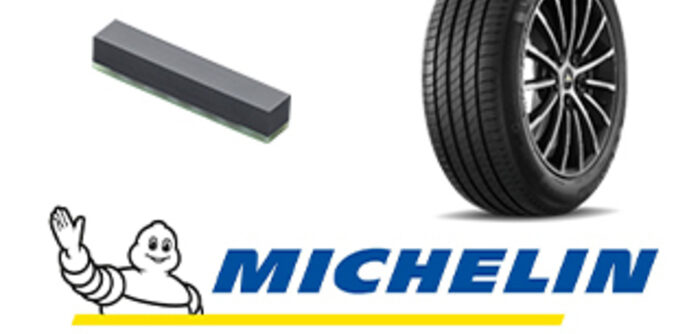Murata Manufacturing and Michelin have co-developed a new generation of RFID modules designed to be embedded into tires.
The pair’s latest RFID tags are robust and passive and require no external power supply, enabling them to operate for a high number of kilometers. They have been designed to offer a low-cost way of tracing a tire throughout its lifespan in terms of inventory logistics, maintenance and recycling operations.
“RFID technology is a key enabler to gain efficiency and optimize tire operations, but also to improve the customer experience while identifying tires and associating data. An embedded tag is the only way to identify tires, from the cradle to the grave, consistently,” commented Jerôme Barrand, Michelin RFID program leader. “Thanks to a great collaboration with Murata, a new, efficient and cost-effective solution has been developed, enabling Michelin to address a larger market. This new generation of RFID tags is already in more than four million Michelin tires. As the technology is also available, from now on, to any other tire manufacturer, this will foster market adoption.”
At present, Michelin uses the RFID tags in commercial vehicles, buses and passenger cars, and intends to use the solution in 100% of its tires by 2024. It also predicts that several other companies will adopt the technology to improve tire traceability.
“Murata will continue to improve technologies for innovative solutions and will contribute to tire management operations,” said Masamichi Ando, senior director of the RFID business department at Murata.
During development, Murata aimed to improve the reliability of the product while also minimizing the cost compared with existing RFID tags. The tags measure 1 x 1 x 6mm and are inserted into a simple spring antenna manufactured by Hana Technologies, enabling the solution to link to the tire ecosystem.
In addition to the RFID module, Murata will offer its id-Bridge platform (RFID middleware) to process and interpret data transmitted by the RFID tags.



